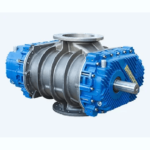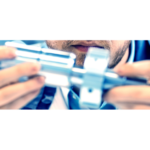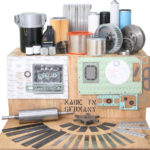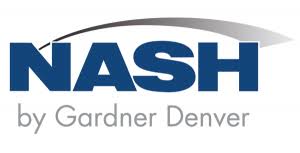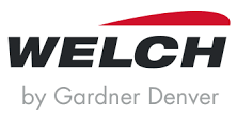Extrusion is a manufacturing process used to create long objects of a fixed cross-sectional profile. The material, which can be plastic, metal, ceramic or foodstuffs, is drawn through a die of the target profile shape and forms a continuous length of that shape. Gardner Denver Nash understands the varying demands placed on plastic extruder vacuum equipment, and now offers a pump that can be configured to handle the water carryover associated with sizing and calibration tables, or be optimized for extruder barrel venting.
Barrel Venting
Plastic extrusion begins with plastic chips, beads or pellets – often referred to as resin. The resin, along with additives such as colorants and UV inhibitors, is fed from a hopper into the barrel of the extruder.
As the resin is pushed toward the barrel by the screw extruder, the resin is heated to a molten state (usually around 400 °F, 200 °C). As the material nears the end of the screw, the melt is unpressurized, and Nash vacuum pumps are used to vent the trapped gases that could create voids and other imperfections in the finished product. Once the melted plastic leaves the barrel, it travels through a screen pack to remove any contaminants. The screens are reinforced by breaker plates, which are thick metal pucks with many holes in it. The plates can withstand the high pressure at that stage of the process, which can exceed 5,000 psi. They also serve to create back pressure in the barrel – which is required for uniform melting and proper mixing of the resin – and it converts the “rotational memory” of the material to “longitudinal memory,” which adds strength.
Calibration & Vacuum Sizing Tables
Once through the breaker plate, the plastic – still in its molten state – enters the die, which gives it the final profile. The extrudate is then cooled and solidified as it is pulled through a water tank. In a tube or pipe extrusion line, a sealed water bath has carefully controlled vacuum applied to keep the still molten tube or pipe from collapsing.
Nash liquid ring vacuum pumps are ideal for this application, because of their ability to handle both intermittent and continuous streams of water without damage or loss of vacuum level. Nash pumps are also tolerant of plastic resin carryover. Add these to over a century of high reliability and engineered excellence, and Nash liquid ring vacuum pumps are the perfect choice for your extrusion process.


